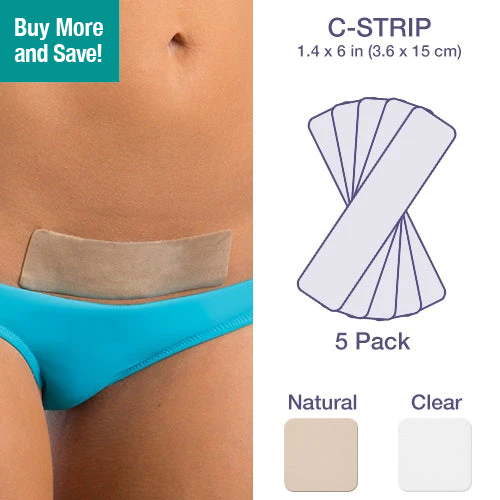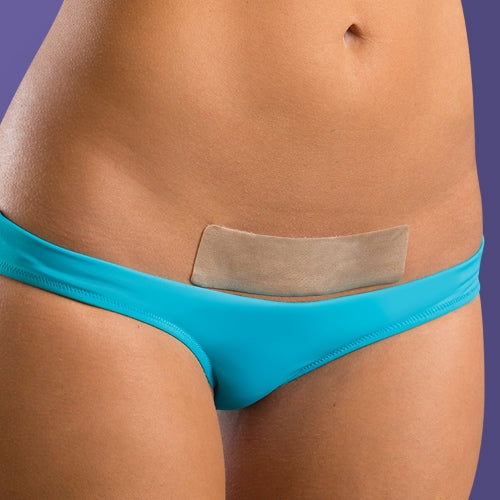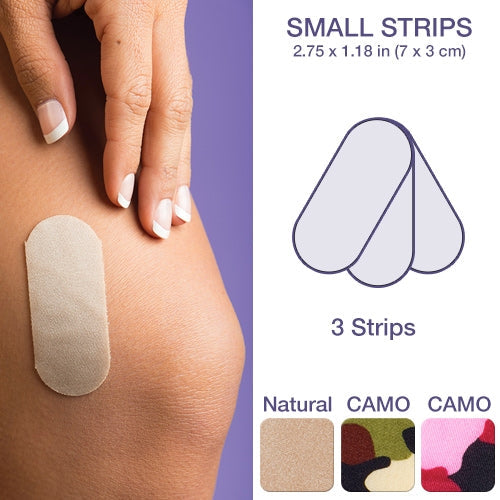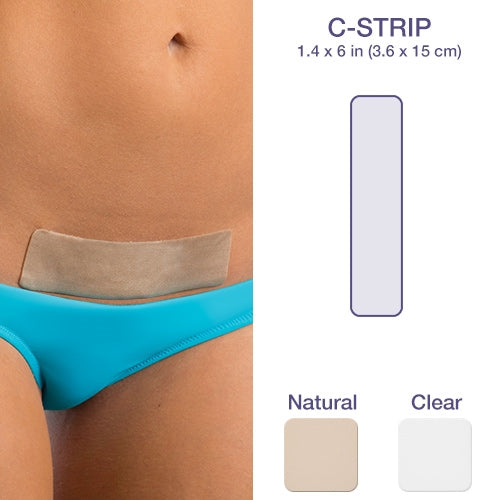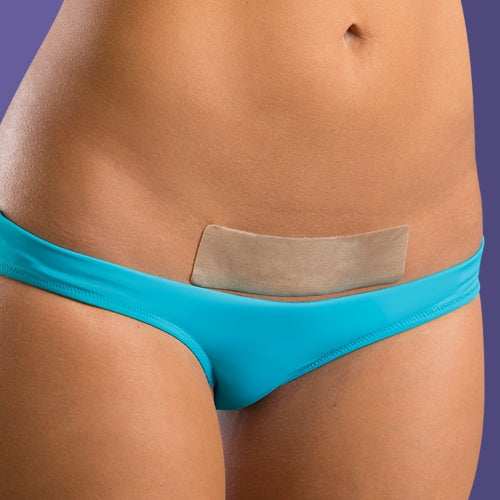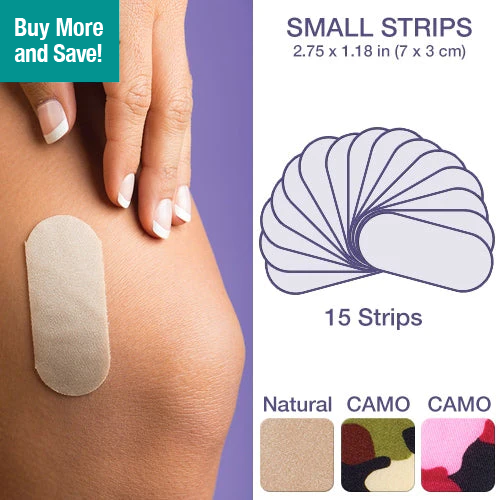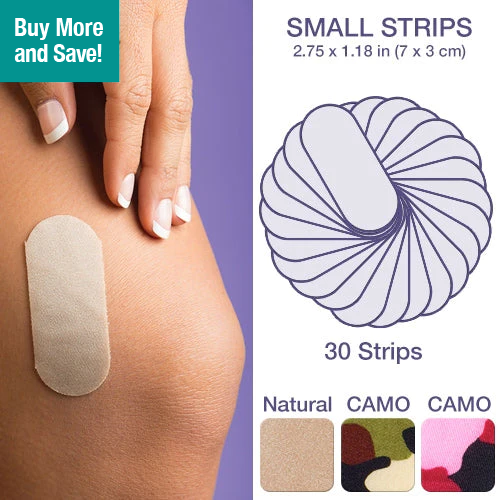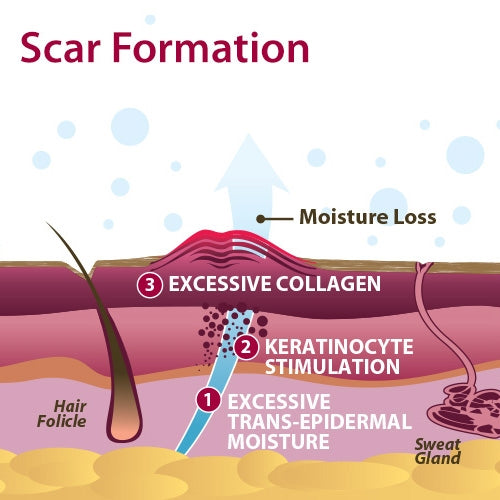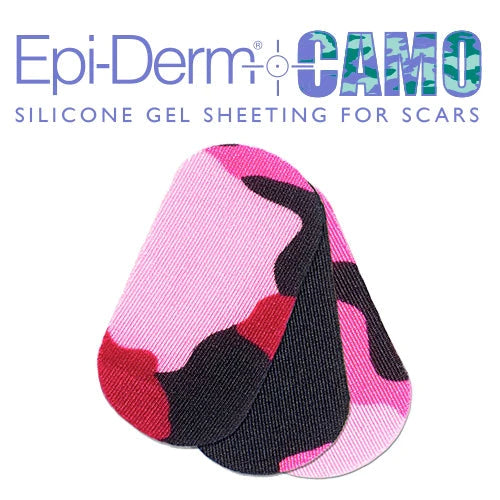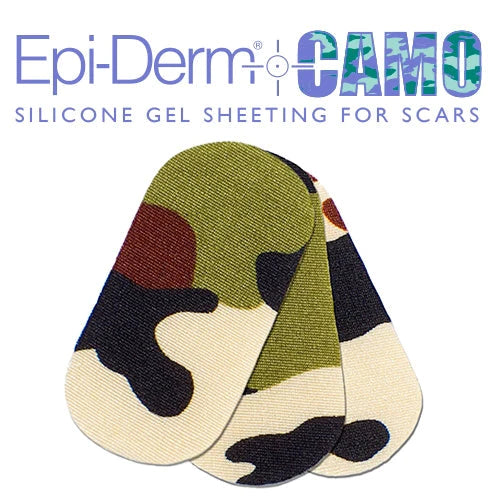Treating Your Scar After Appendix Removal
Posted August 2019 by Biodermis
Appendix removal, also known as an appendectomy, is a surgical procedure designed to remove the appendix from the body. This procedure is routinely done as an emergency surgery in response to appendicitis—an inflammatory condition of the appendix. An appendectomy requires that the surgeon perform an incision, measuring several inches in length, on the lower right side of the abdomen. The incision site will require stitches and may take several weeks to heal, often resulting in a noticeable scar. Many patients are self-conscious about the scar that reminds them of their surgery. Luckily, with proper wound care and the right products, scar management after surgery has never been easier.
Continue reading to learn more about appendix removal surgery and to discover clinically-proven ways to help your scar fade naturally.

Inflammation of the appendix occurs when it contracts a bacterial infection. This can cause severe pain for the patient and can become life-threatening if not treated promptly. The pain from an inflamed appendix can be unbearable within just a few hours, often prompting the need for emergency removal. Most doctors will recommend having an inflamed appendix removed. Even healthy appendixes might be removed during an abdominal surgery such as a hysterectomy (removal of a woman’s uterus). The main justification for removing a healthy appendix is that it is an organ with a high risk of becoming infected. Add this to the fact that the appendix has no apparent function, and it makes greater sense to just have it removed altogether.

Post-operative scar care
Scars form as a result of an intricate and complex wound healing process that occurs when the dermis (middle layer of skin) is damaged. The maturation process, otherwise known as remodeling, occurs during the final stage of wound healing when collagen and other skin cells work to rebuild the damaged tissue. Damaged tissue, which is what scar tissue is, losses more moisture through transepidermal water loss than normal, healthy tissue. This causes an imbalance at the scar site that can lead to abnormal scar formation in the form of keloids and hypertrophic scars. Abnormal scars are the result of genetics, improper wound care, and wound infection.
The first step to ensuring that you don’t attain an abnormal scar after your appendectomy is to keep your wound clean, protected, and hydrated. By doing this, you will speed up the wound healing process and decrease the risk of infection. Once the wound has fully healed and scarring has started to occur, you can begin using topical silicone gel to prevent unwanted scar types. Medical-grade silicone is the doctor-recommended choice for non-surgical scar therapy. Doctors trust silicone gel because it is backed by over 30 years of clinical evidence. Topical silicone can be obtained through your physician or online at biodermis.com.
Continue reading to learn more about appendix removal surgery and to discover clinically-proven ways to help your scar fade naturally.

What is the appendix and why do some people have it removed?
The vermiform (worm-shaped) appendix is a narrow, pouch-like sac of tissue that is connected to the inferior part of the large intestines in the lower right abdomen. As part of the lymphatic system, the appendix contains masses of lymphatic tissue, unlike the rest of the large intestines. The presence of lymph tissue suggests that the appendix plays a role in the immune system as well as the digestive system. Surprisingly, however, scientists and medical professionals still aren’t clear on the exact function of the appendix. Some researchers believe that the appendix is a vestigial remnant of human ancestors and no longer serves any purpose in the body. Others believe that the appendix is a storage unit for healthy bacteria that comes into play when we get sick and our intestines need extra support.
Inflammation of the appendix occurs when it contracts a bacterial infection. This can cause severe pain for the patient and can become life-threatening if not treated promptly. The pain from an inflamed appendix can be unbearable within just a few hours, often prompting the need for emergency removal. Most doctors will recommend having an inflamed appendix removed. Even healthy appendixes might be removed during an abdominal surgery such as a hysterectomy (removal of a woman’s uterus). The main justification for removing a healthy appendix is that it is an organ with a high risk of becoming infected. Add this to the fact that the appendix has no apparent function, and it makes greater sense to just have it removed altogether.

Post-operative scar care
Scars form as a result of an intricate and complex wound healing process that occurs when the dermis (middle layer of skin) is damaged. The maturation process, otherwise known as remodeling, occurs during the final stage of wound healing when collagen and other skin cells work to rebuild the damaged tissue. Damaged tissue, which is what scar tissue is, losses more moisture through transepidermal water loss than normal, healthy tissue. This causes an imbalance at the scar site that can lead to abnormal scar formation in the form of keloids and hypertrophic scars. Abnormal scars are the result of genetics, improper wound care, and wound infection.
The first step to ensuring that you don’t attain an abnormal scar after your appendectomy is to keep your wound clean, protected, and hydrated. By doing this, you will speed up the wound healing process and decrease the risk of infection. Once the wound has fully healed and scarring has started to occur, you can begin using topical silicone gel to prevent unwanted scar types. Medical-grade silicone is the doctor-recommended choice for non-surgical scar therapy. Doctors trust silicone gel because it is backed by over 30 years of clinical evidence. Topical silicone can be obtained through your physician or online at biodermis.com.
Biodermis is an innovative market leader with 30 years of expertise in the medical silicone industry. Visit Biodermis.com today to explore a complete range of scar management and post-operative care solutions.
PHYSICIANS AND MEDICAL PROFESSIONALS: REFER OR RESELL?
Biodermis offers custom tailored referral programs designed to simplify and reduce the cost of your patients' post-op care. Additionally, we offer professional pricing if you opt to retail our products. Give us a call at 800.322.3729, and we will be happy to provide additional details on these programs.


